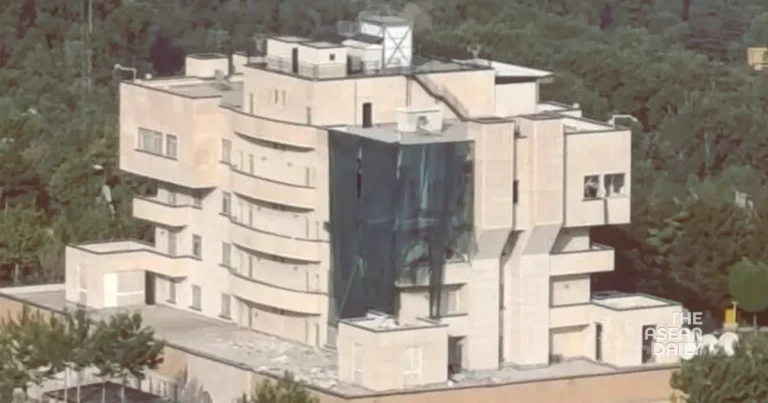1-8-2024 (CAIRO) Ismail Haniyeh, a prominent leader of Hamas, was killed on Wednesday in a meticulously planned explosion at a Tehran guesthouse. The incident, which also claimed the life of a bodyguard, has sent ripples through international diplomatic circles and raised concerns about a potential escalation of violence in the region.
According to multiple sources, including Middle Eastern and American officials speaking on condition of anonymity, the fatal blast was the result of an explosive device covertly planted in the guesthouse approximately two months prior to Haniyeh’s arrival. The guesthouse, part of the high-security Neshat compound in an affluent area of northern Tehran, is operated and guarded by the Islamic Revolutionary Guards Corps (IRGC).
Haniyeh, who was in Iran’s capital for the presidential inauguration, fell victim to the remotely detonated bomb once his presence in the room was confirmed. The explosion not only took the lives of Haniyeh and his bodyguard but also caused significant structural damage to the building, shattering windows and partially collapsing an exterior wall.
The assassination has immediately been attributed to Israel by Iranian officials and Hamas, an assessment shared by several unnamed US officials. This bold operation, if indeed carried out by Israel, represents a significant escalation in the ongoing conflict and could potentially derail the current negotiations aimed at ending the war in Gaza, in which Haniyeh played a crucial role as a top negotiator.
The method of assassination has sparked intense speculation and debate. Initial reports suggesting a missile strike were quickly dispelled as details emerged about the planted explosive device. This revelation has raised serious questions about the security protocols at the supposedly impenetrable IRGC-run compound, exposing a catastrophic intelligence failure that has deeply embarrassed the Guards.
The planning and execution of this operation, according to Middle Eastern officials, required months of preparation and extensive surveillance of the compound. The precise nature of the attack has drawn comparisons to previous high-profile assassinations attributed to Israel, such as the killing of Iran’s top nuclear scientist Mohsen Fakhrizadeh in 2020.
The aftermath of the explosion saw a flurry of activity within Iran’s highest echelons of power. Supreme Leader Ayatollah Ali Khamenei was awakened in the middle of the night to be informed of the incident and subsequently convened an emergency meeting of Iran’s Supreme National Security Council, reportedly issuing an order for retaliatory strikes against Israel.
This assassination comes at a particularly sensitive time, coinciding with the inauguration of Iran’s new president, Masoud Pezeshkian. The presence of senior government officials and dignitaries from 86 countries in Tehran for the ceremony added an extra layer of complexity to the security situation.
The international community now watches with bated breath as the repercussions of this audacious operation unfold. The killing of such a high-ranking Hamas leader on Iranian soil not only demonstrates the reach and capabilities of the suspected perpetrators but also poses significant challenges to ongoing peace efforts in the region.




